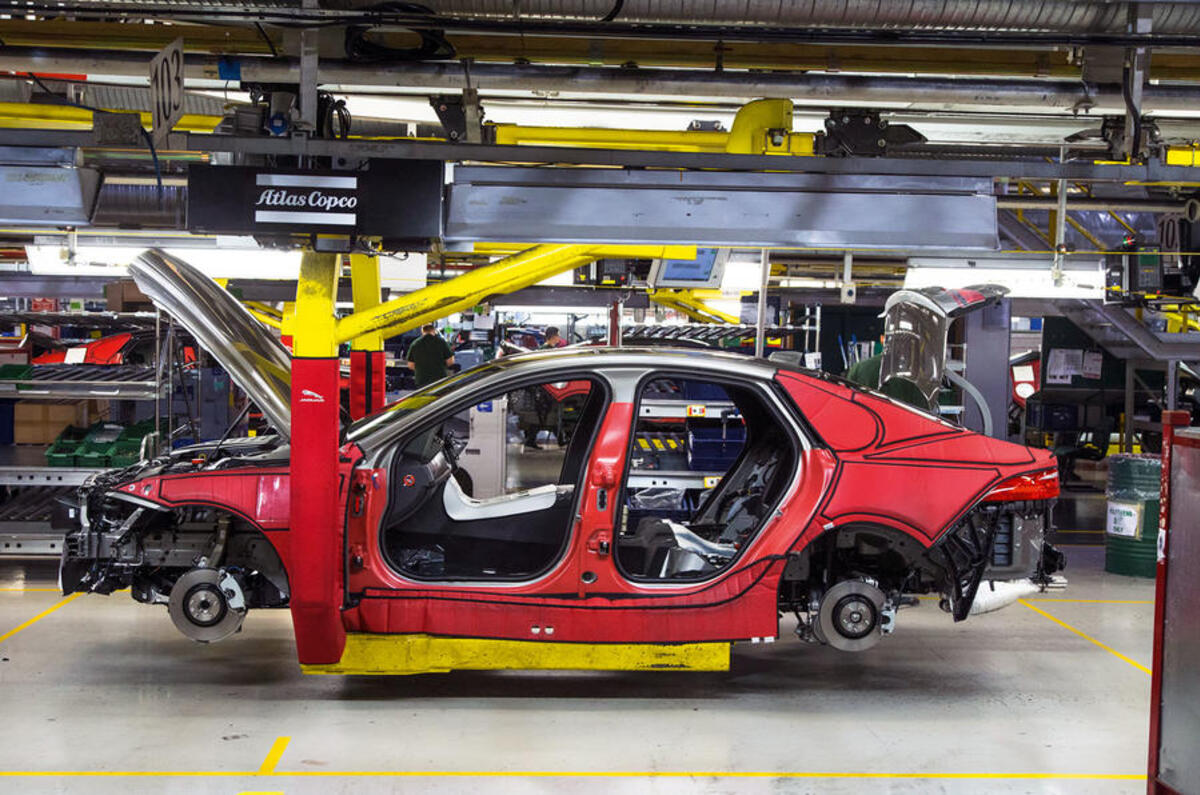The latest UK car manufacturing figures are “deeply depressing”, according to Mike Hawes, chief executive of the Society of Motor Manufacturers and Traders, the automotive industry’s mouthpiece in the UK.
If that doesn’t give you a clue to the current sentiment, not much else will.
UK car sales fell 6.8% in 2018. UK car manufacturing, as we found out today, fell 9.1%. Lots of things are to blame: uncertainty over diesel policy in the UK and abroad, falling business and consumer confidence, regulatory changes, slumps in China and Europe.
But, of course, the looming issue of the 'B' word is not far away. The SMMT has lobbied so hard for a frictionless trade deal that it’s imprinted on my mind. The SMMT and its members are getting increasingly nervous about what’s going to happen.
Two-thirds of UK car exports go to Europe or countries with EU trade agreements, says the SMMT, adding that a ‘no-deal’ Brexit could put this under threat.
Hawes says the industry is “increasingly nervous and exasperated” and claims that he’s not met a single person in the industry who has been pro-Brexit. When the referendum happened, 10% of SMMT members who responded to its survey said they were pro-Brexit.
The biggest problem at the moment is the uncertainty. The SMMT’s take is that it wants a single market that means – yes - frictionless trade. This will ensure the many parts of the supply chain involved in producing a car should go unaffected.
That’s looking less and less likely, but whatever way it’s going to go, the car industry just wants to know either way, says Hawes. Whether it's a no-deal Brexit or a transition, firms are desperate to be able to plan, knowing what to plan for - something that hasn’t been possible for more than two years. That’s one reason why automotive investment in the UK almost halved in 2018. It is the first time it’s been under £1 billion in five years.
One possible scenario after Brexit is trading on World Trade Organization terms, but the SMMT says that raises many issues. It means tariffs of 10% on cars, plus Hawes says there will probably be border checks and other additional costs.
For many, in the industry and beyond, it’s starting to look rather alarming. Could Brexit kill the UK car making industry?
There’s a counter argument, of course. A pro-Brexit automotive expert makes the point that an independent Britain can make our own rules.
For example, as part of the WTO and facing 10% tariffs, the UK could reduce corporation tax for auto makers to balance things out. It could, he says, give us a competitive edge over Europe.
But for now, the industry sees no light at the end of the tunnel. Hawes says that, in the long term, no deal will be “a catastrophe for the industry”. He added: “It would be hard to see the levels of production volume that we currently have remain.”




Join the debate
Add your comment
Will Brexit kill the British car industry?
No, crap management and even crappier politicians will kill the British Auto Industry.
We Brits don't have a car
We Brits don't have a car industry anymore unless you count the hobby car maker Morgan.
We just assemble other people cars for them , this happened way before Brexit or any other kind of so called crisis came along.
The fault lies with poor British management, poor industrial relations, poor design, the list goes on and on.
Blame Brexit, blame man landing on the moon, blame....
Just blame the Brits.
Utter crap.
@lambo58.
Quote: "
We Brits don't have a car industry anymore unless you count the hobby car maker Morgan.
We just assemble other people cars for them , this happened way before Brexit or any other kind of so called crisis came along. "
But we do have British jobs. It is better to have a foreign owned factory creating jobs than no factory at all!
We could be any country and
We could be any country and the Chinese could do anything we can cheaper and better, and if it wasnt for our location we wouldnt even have those jobs- we are just drip drip dripping our country away as predicted by an editor at CAR magazine years ago .
We do not own anything anymore which is where the real money and power come
Dyson is just one who has seen the writing on the wall which is why he is centralizing to Singapore and using the new wave of graduates from oriental universities as our graduates with engineering degrees whereas our yoof only want to study media and other pointless subjects
Brexit
No but not going EV will, Jaguar I pace already outsells some of it’s other models and is nearly 10% of Jaguar sales. They decided not to make this in the U.K. Even with I Pace success the penny still hasn’t dropped at JLR so the door is now wide open for the Germans & the French to take the lead. We will just carry on making ICE cars and start making video recorders, and crt TVs again.